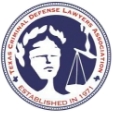
Adoption provides a wonderful opportunity to grow your family, but the process is more complicated than signing some paperwork and taking in your newest family member. There are different methods that might benefit you more in certain situations, and a Knoxville adoption lawyer can help you understand how to proceed to protect your family and your options.
What is the Difference Between Open & Closed Adoption
There are two common methods to adopt a new family member – open and closed adoptions. There’s no right or wrong answer to which you should use, but there are benefits and challenges to both that may make one way more difficult than it’s worth.
What Are Open Adoptions?
In an open adoption, identifying information is shared between parties and there is some agreed contact between the adoptive family and the birth family after finalization. Contact can be light or more involved. It’s critical that any decisions are child-centered and predictable, so make sure you consider that if you’re planning on adopting a child old enough to think for themselves.
How Do Closed Adoptions Work?
In a closed adoption, identifying information is not shared and there is no planned contact after finalization. Records are generally sealed. Some non-identifying or medical details may still be available through proper channels in case there are complications in the future, but for the most part, there is no contact between parties.
How Does Tennessee Law Frame “Openness” in Adoptions?
Tenessee courts follow the law to ensure adoptions are handled with care and every requirement is met. A judge will consider these facets during the open adoption process:
Best Interests of the Child
Courts prioritize the child’s safety, stability, and long-term well-being at every step. Any openness plan should support those goals.
Consent and Termination of Parental Rights
- When consents are obtained, timelines are often smoother.
- If termination of parental rights is contested, the court must find legal grounds and also determine that termination serves the child’s best interests before adoption can proceed.
Post-Adoption Contact Agreements (PACA)
- Tennessee recognizes written contact agreements in many cases.
- A PACA can set expectations (updates, calls, visits) and outline how changes are handled if the child’s needs shift.
- An attorney can explain where PACA makes sense, its limits, and what to do if someone doesn’t follow it.
Privacy and Records
- Closed adoptions generally mean sealed records.
- Even in open adoptions, families should plan sensible privacy practices to protect the child.
What Families Often Value About Open Adoption
Not every family considers open adoptions, but some aspects can be considered benefits, as compared to closed adoptions, like:
Potential Benefits for the Child
In an open adoption, a child will have better access to the history of their birth history and will be able to maintain a connection. They will enjoy a clearer personal story, along with a sense of identity. And in some cases, they have better opportunities to ask questions that may have challenging answers and still be met with the courtesy of age-appropriate answers. For instance, an adopted child may ask why their family chose to “give them away,” and their birth parents may choose to provide an answer that doesn’t muddy the air or make the child resentful towards either their birth family or new parents.
Potential Benefits for Adoptive Parents
For parents choosing to adopt, open adoptions allow them access to medical histories that they need to as they provide for their newest family member. With an open adoption, the parents can also speak with their child’s birth parents to discuss any cultural identity that may be unique to the child. For instance, a white family adopting someone of South American heritage may want their children to understand their birth family’s history or background. This allows both sets of parents to create a cooperative relationship that will allow the child the best chance to thrive possible.
Are There Trade-Offs That Need Considered for Open Adoptions?
Just because there is more communication available in open adoptions between the different parties, that doesn’t make them magically perfect. Instead, it does take work to create boundaries and manage them. And when either party misaligns their expectations, it can make more trouble down the road. An adoption attorney can help draft a plan that will give both sets of parents, birth and adoptive, some guidelines
What Families Often Value About Closed Adoption
Closed adoptions are more anonymous and disconnected than open adoptions, but they still have benefits that may be preferable, depending on your situation.
Potential Benefits for the Child & Family
Closed adoptions give families and the adopted child clear boundaries which simplify the roles parents take. There are fewer variables for relationships – typically, once the adoption is complete, the birth parents will not be in contact with the new family. This allows the adopted child and their parents time to adjust and develop cohesion.
Common Trade-Offs in Closed Adoptions
People choosing closed adoptions often do not have the benefits of diving into the birth parents’ medical history, which could prove challenging when there are complications. The adoptive parents will also need to decide how to introduce their child to their birth parents’ culture, which can be challenging.
How Can We Make Openness Work: Boundaries and Safety
Building a Child-Centered Contact Plan
- Frequency and format of updates (photos, letters, video calls)
- Who participates in visits and where they occur
- How holidays and milestones are handled
- Safety and privacy practices (e.g., PO boxes, supervised settings when appropriate)
Get a Plan in Writing
- Consider a PACA for clarity and accountability.
- Revisit terms as the child grows and needs change.
Special Situations That Can Shift the Decision
Stepparent and Relative (Kinship) Adoptions
In kinship and stepparent cases, openness may look different because existing relationships and family dynamics already exist. Your plan should reflect those realities and keep expectations clear.
Infant vs. Older-Child Adoptions
Older children may have existing connections and histories to preserve. Openness choices should be trauma-informed and guided by professionals.
How Do I Choose My Adoption Method: Practical Questions to Ask an Adoption Lawyer
Family Values and Comfort
- How comfortable are you with ongoing contact?
- What privacy level feels right for your household?
Child-Centered Considerations
- Will access to heritage, story, and medical history help your child?
- Can you maintain healthy boundaries over time?
Professional Support
- Do you want the structure and services of an agency?
- Will you need counseling support to navigate openness well?
How a Knoxville Adoption Attorney Helps
An adoption attorney can make the adoption process smoother than working on your own. They can explain Tennessee’s adoption requirements, what either method offers you, and provide guidance on how you can make your decision.
Your attorney can also ensure all filings are made on time, without errors. They’ll help coordinate with any agencies or experts you need, and help you find resources to support your decision and your family after the adoption is complete.
FAQs about Open or Closed Adoption in Tennessee
Is there a middle ground between open and closed?
Yes. Many families use a “semi-open” approach. Communication is limited and often mediated (for example, updates through an agency or attorney without sharing identifying details). This can offer connection and medical updates while preserving privacy.
Are post-adoption contact agreements enforceable in Tennessee?
Tennessee recognizes written contact agreements in many cases. An attorney can explain when they’re appropriate, how to structure them, and what steps to take if terms aren’t followed.
Can we change our openness level later?
Plans can evolve as your child grows. You can revisit contact frequency or format and, where applicable, seek to modify written terms to better serve the child’s needs.
Will openness affect finalization?
Openness itself doesn’t replace legal requirements like consents, termination of parental rights, and court approval. Your attorney ensures openness plans are aligned with the required legal steps.
How does contact work if we use an agency versus a private arrangement?
Agencies often mediate and document contact, which can reduce friction. In private arrangements, your attorney typically drafts the plan and helps set clear, workable boundaries.
Talk With a Knoxville Adoption Lawyer
Schedule a free 20-minute consultation with Haines Family Law to discuss open vs. closed adoption, private vs. agency paths, and the right contact plan for your child’s long-term well-being. Call 865-269-2524 or use our online form.







